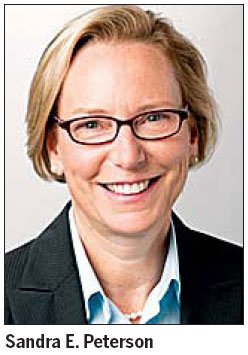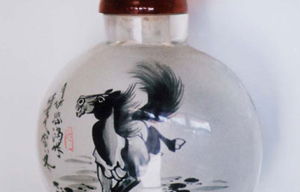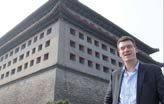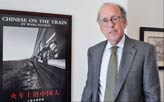Society
Industry Special: Bayer CropScience: Rejuvenation through more R&D and bioscience
Updated: 2011-09-21 07:55
By Zhuan Ti (China Daily)

Bayer CropScience unveiled a new four-pillar strategy for future growth at the company's annual press conference on Sept 15 in Monheim, Germany.
Sandra E. Peterson, CEO of Bayer CropScience, outlined the company's plan to drive business growth by focusing on rejuvenating its core crop protection business, being customer-centric along the entire value chain, refocusing its innovation through increased R&D investment and extending its bioscience business
"Our entire organization is focusing on meeting the rapidly changing needs of a planet hungry for agricultural resources," said Peterson.
"We will continue to meet these needs only by increased focus, improved efficiency and accelerated innovation."
Phasing out
Bayer CropScience is currently restructuring its crop protection business by phasing out older products, increasing its focus on key brand families, extending its presence further into emerging markets and developing its supply chain operations.
Peterson highlighted the company's new cereal fungicide Xpro.
"Xpro is a good example of how our chemical innovation and engineering expertise can be translated into improved efficiency," she said.
The Xpro family recorded over 100 million euros ($137 million) in sales revenue in Europe in its first six months on the market in 2011.
She also announced that the company is accelerating the phase out of all remaining World Health Organization class I insecticides.
"By the end of 2012, Bayer CropScience will no longer have products with this classification anywhere in its portfolio," said Peterson.
Chemicals in this category will be replaced by modern and more environmentally friendly substances, she said.
The CEO noted customer-centric efforts across the value chain to deliver solutions from seed to shelf.
This involves increased grower orientation and improved channel management practices and broadening successful food chain partnerships through cooperation with multinational food companies and retailers, Peterson said.
The company is refocusing innovation with a growing emphasis on its bioscience business unit and new growth areas in agrochemical research.
To better fuel future growth from innovation, the company intends to double annual investment for R&D at its bioscience unit by 2015.
Total R&D budgets at Bayer CropScience are planned to rise some 20 percent annually to more than 850 million euros ($1.16 billion) by 2015.
As well, Bayer CropScience plans to further build its leadership in cotton, oilseeds and vegetable seeds - areas where the company outpaced the growth of the global seeds and traits market in 2010 and continues to do so in 2011.
In addition, it intends to enhance its presence in soybeans, rice and wheat, which represent three out of the four global broad-acre crops.
In soybeans, Bayer CropScience will establish a broad germplasm base, develop best-in-class breeding operations and a unique soy trait pipeline, Peterson said.
The company will continue to drive hybrid rice adoption in Asia and support farmers in the region to grow "much more rice".
Wheat has also been designated a major strategic crop for Bayer CropScience, and it is putting significant resources into R&D of new varieties and traits. The first new wheat varieties resulting from this initiative are expected to reach the market by 2015.
First-half performance
Peterson said she was pleased with the company's performance in the six months of 2011, when Bayer CropScience delivered record sales revenue of 4.2 billion euros (5.7 billion), an 11 percent increase from a year ago.
Despite adverse weather conditions in important growing regions, the Bayer subgroup has seen a strong performance in both its crop protection and bioscience segments in key markets.
In crop protection the company realized a 10 percent growth to 3.24 billion euros ($4.42 billion) in sales revenue.
The bioscience business delivered a 25 percent increase to 598 million euros ($816 million).
Sales at the environmental science united came in at 364 million euros ($497 million).
Earnings before interest, taxes, depreciation and amortization increased 34 percent from a relatively weak 911 million euros ($1.24 billion) in the first half of 2010 to 1.22 billion euros ($1.67 billion) this year.
Bayer AG is a global enterprise with core competence in healthcare, nutrition and high-tech materials.
Bayer CropScience, a subgroup of Bayer AG with sales revenue of 6.83 billion euros ($9.33 billion) in 2010, is one of the world's leading innovative crop science companies in the areas of crop protection, non-agricultural pest control, seeds and traits.
The company offers a range of products and services for modern, sustainable agriculture and for non-agricultural applications.
Bayer CropScience has a global workforce of 20,700 and is represented in more than 120 countries.
It has been in China for more than two decades since it founded the first joint venture in 1989.
It offers Chinese farmers products and solutions covering fields ranging from grains, cash crops and vegetables to fruits.
(China Daily 09/21/2011 page12)
E-paper

The snuff of dreams
Chinese collectors have discovered the value of beautiful bottles
Perils in relying on building boom
Fast forward to digital age
Bonds that tie China. UK
Specials

Let them eat cake
Cambridge University graduate develops thriving business selling cupcakes

A case is laid to rest
In 1937, a young woman'S body was found in beijing. paul french went searching for her killer

Banking on change
Leading economist says china must transform its growth model soon
